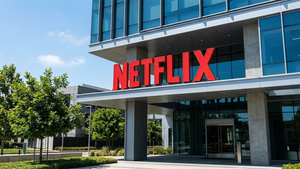Board action recognizes disparities in regional water infrastructure, impacts on some communities
With extreme drought placing unprecedented stress on the region’s water delivery system and supply availability that prompted shortages for 6 million Southern Californians this year, Metropolitan Water District’s Board of Directors is committing to providing its entire six-county service area with reliable and equitable access to available water and storage across the region.
The board on Tuesday (Aug. 16) adopted an important resolution recognizing the impacts the historic drought and water system limitations have had on the region. The resolution outlines remedies to address the situation by building infrastructure, increasing local supplies, expanding partnerships, advancing water-use efficiency and planning for the escalating impacts of climate change.
“It is unacceptable that some of our agencies are experiencing a more dire situation today because of constraints in our water system that have been exposed by the current record dry conditions,” said Metropolitan board Chairwoman Gloria D. Gray.
“Through this action, our board has made it clear that this problem cannot be ignored. We will be unyielding in our pursuit of solutions and improvements to fix this problem, which will ultimately make all of Southern California stronger and more resilient,” she said.
After three of the driest years in California history, the State Water Project – which typically provides about 30 percent of the water used in Southern California annually – experienced its lowest-ever deliveries this year. Six Metropolitan member agencies serving portions of Los Angeles, Ventura and San Bernardino counties that rely on state project supplies from Northern California for some or all of their water supplies have been particularly impacted because Metropolitan’s water system lacked the flexibility to deliver from the Colorado River or access water stored in Diamond Valley Lake.
To stretch limited supplies and ensure these SWP-dependent areas have enough water to get through the year, for the first time in its history, Metropolitan in June required affected agencies to impose and enforce emergency conservation restrictions amounting to supply cutbacks of about 35 percent on average. Affected agencies include Calleguas Municipal Water District, Inland Empire Utilities Agency, Las Virgenes Municipal Water District, Los Angeles Department of Water and Power, Three Valleys Municipal Water District and Upper San Gabriel Valley Municipal Water District.
“Climate change is here, but the system we created in the past is not sufficient for the future,” Metropolitan General Manager Adel Hagekhalil said. “I am grateful for the extraordinary conservation actions our SWP-dependent agencies and their communities have made in the short-term to get us through the immediate challenge. And I appreciate the work and partnerships with all our member agencies to find new ways to bring Metropolitan and the entire region into a new era of reliability.
“That means increasing long-term water savings through water use efficiency, transforming non-functional turf into more appropriate landscaping and advancing the development of recycled water, groundwater recovery, stormwater capture and desalination,” he said.
In response to the record drought, Metropolitan has collaborated with its member agencies to develop and apply extraordinary actions aimed at preserving state project water for the communities that need it most. Investments include emergency drought projects that deliver Colorado River supplies and stored Diamond Valley Lake water further into the district’s service area, along with pursuing water transfers and partnerships to access additional supplies. Metropolitan also accelerated its Pure Water Southern California recycled water project to develop a new supply source for the region.
The adopted resolution calls for specific projects and programs that will offer greater supply reliability for SWP-dependent areas to be brought back to the board by February 2023, along with quarterly reports to the board on the status of emergency drought projects. It also prioritizes capital construction projects, spending plans and board approvals to expedite work on critical and time-sensitive elements that address supply and infrastructure reliability.
The Metropolitan Water District of Southern California is a state-established cooperative that, along with its 26 cities and retail suppliers, provides water for 19 million people in six counties. The district imports water from the Colorado River and Northern California to supplement local supplies, and helps its members to develop increased water conservation, recycling, storage and other resource-management programs.
View source version on businesswire.com: https://www.businesswire.com/news/home/20220817005787/en/
Contacts
Maritza Fairfield, (213) 217-6853; (909) 816-7722, mobile; mfairfield@mwdh2o.com
Bob Muir, (213) 217-6930; (213) 324-5213, mobile; rmuir@mwdh2o.com





